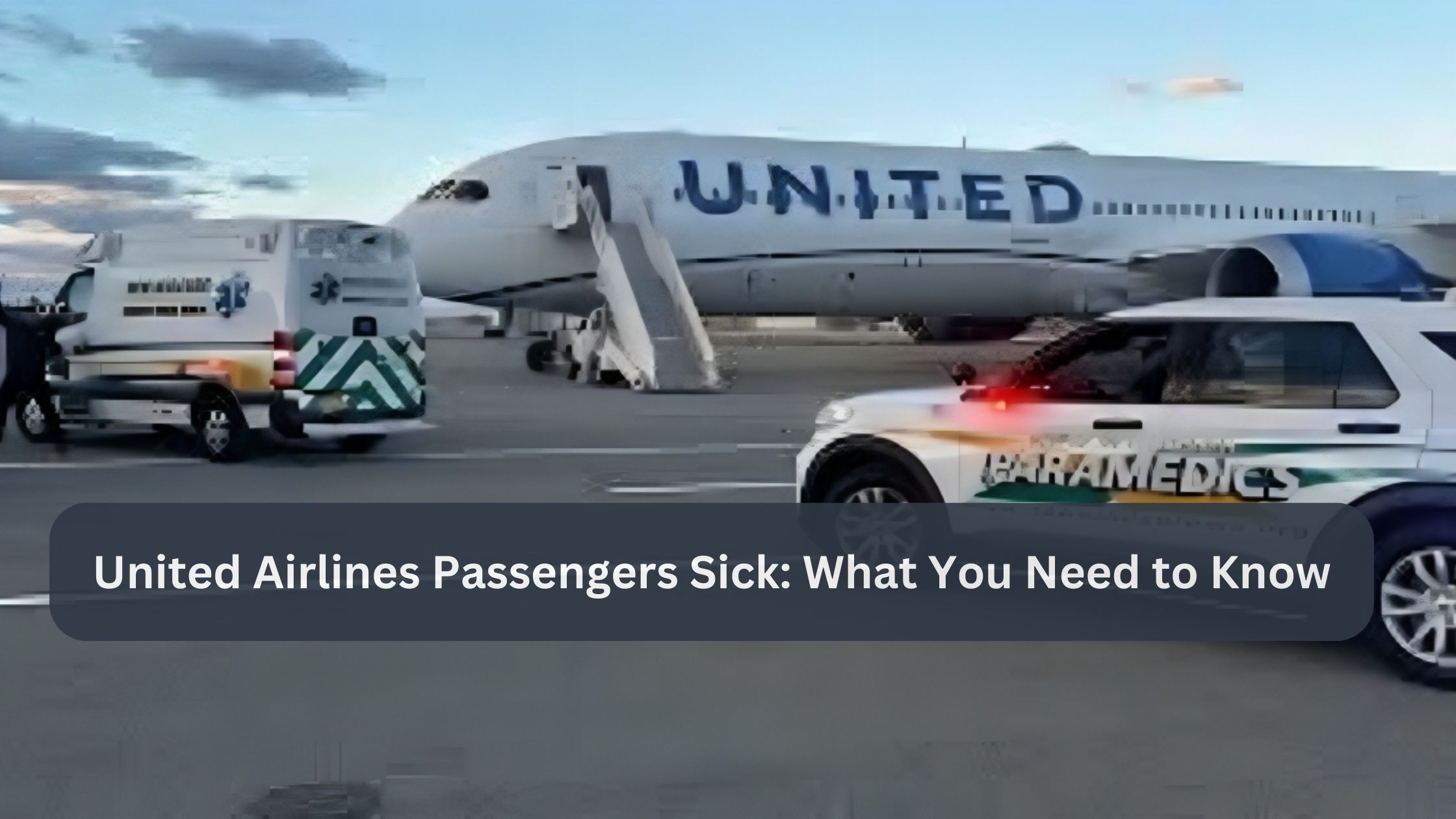On a United Airlines flight from Vancouver, Canada, to Houston, Texas, about two dozen passengers fell ill, sparking concern and widespread media attention.
This incident has led many to question what happened, how it was handled, and what it means for air travel safety. This article will break down everything you need to know about the situation in simple terms, explore potential causes, and discuss how airlines can prevent such incidents in the future.
What Happened on the United Airlines Flight?
On a recent United Airlines flight, roughly 20 passengers became sick during the journey from Vancouver to Houston.
The illness spread quickly, and passengers began experiencing symptoms such as nausea, dizziness, and vomiting. The crew had to take immediate action to address the situation, which resulted in the plane being met by medical teams upon landing.
Also Read: GDP – Deleted Scene – E355: An In-Depth Analysis
Possible Causes of Passenger Illness
1. Food Poisoning: One possible cause of the sudden illness could be food poisoning. Airline meals, if not stored or prepared correctly, can lead to foodborne illnesses. Although airline food safety standards are generally high, incidents like this can occur if something goes wrong in the supply chain.
2. Air Quality Issues: Air quality on airplanes is another potential factor. Modern aircraft are equipped with advanced air filtration systems, but issues can arise, such as contaminated air from the outside or malfunctioning systems, which can lead to passengers feeling unwell.
3. Contagious Illness: There is also the possibility that a contagious illness was brought on board by one of the passengers. This could have quickly spread in the confined space of the plane, causing multiple passengers to fall ill.
4. Chemical Exposure: In some cases, chemical exposure, such as a spill of cleaning products or other chemicals, can lead to sudden sickness among passengers. The enclosed environment of an airplane can amplify the effects of such exposure.
5. Motion Sickness: Motion sickness, while common, rarely affects so many people simultaneously. However, turbulence or an unusually bumpy flight can cause more passengers than usual to experience symptoms.
How United Airlines Handled the Situation
United Airlines responded swiftly to the situation. Upon landing, the passengers who fell ill were evaluated by medical professionals. The airline also cooperated with health authorities to determine the cause of the illnesses and ensure the safety of all passengers on future flights.
Read More: The Ultimate Guide to Flat White: A Coffee Lover’s Delight
Lessons Learned: How Airlines Can Prevent Similar Incidents
1. Enhanced Food Safety Protocols: Airlines need to continually review and enhance their food safety protocols. This includes ensuring that all food served on board is handled, stored, and prepared under strict hygienic conditions.
2. Improved Air Quality Monitoring: While modern airplanes have advanced air systems, airlines should invest in even more robust air quality monitoring to detect and address potential issues before they affect passengers.
3. Quick Response Teams: Having quick response teams that can handle medical emergencies and potential outbreaks on board is crucial. Airlines can train their crew to recognize the signs of illness early and take appropriate action.
4. Clear Communication Channels: Clear and prompt communication with passengers during such incidents is essential. Keeping passengers informed about what’s happening and what measures are being taken can help reduce panic and ensure cooperation.
The Impact on Passengers
The incident left many passengers shaken and concerned about their health and safety while flying. For those who became sick, the experience was undoubtedly distressing, and it highlights the importance of maintaining high safety standards in all aspects of air travel.
Also Read: The Life and Legal Battle of Maya Kowalski
FAQs About United Airlines Passengers Getting Sick
Q1: What should I do if I feel sick on a flight?
If you start feeling sick on a flight, notify the cabin crew immediately. They are trained to assist passengers in medical emergencies and can provide first aid or arrange for medical assistance upon landing.
Q2: How can I protect myself from getting sick on a plane?
To protect yourself, practice good hygiene by washing your hands regularly, using hand sanitizer, and avoiding close contact with sick passengers. You can also wear a mask if you are concerned about airborne illnesses.
Q3: Are incidents like this common on flights?
While incidents of mass illness on flights are rare, they can happen. Airlines take multiple precautions to ensure passenger safety, but factors like foodborne illness, air quality, and contagious diseases can still pose risks.
Q4: What actions do airlines take after such incidents?
After an incident where passengers fall ill, airlines typically conduct a thorough investigation, work with health authorities, and take steps to prevent future occurrences. This might include reviewing food safety protocols, inspecting air systems, and training crew members.
Q5: Can I get a refund if I fall sick on a flight?
Whether or not you can get a refund depends on the airline’s policies. In some cases, if the illness was due to factors under the airline’s control (like contaminated food), you may be entitled to compensation.
Read More: ETSIOSApp Release Date: And What Makes It Unique
Conclusion
The incident where United Airlines passengers became sick highlights the importance of strict safety protocols in air travel.
While the exact cause of the illness is still under investigation, it serves as a reminder that airlines must always be vigilant in protecting the health and safety of their passengers. For travelers, staying informed and taking personal precautions can also help reduce the risk of getting sick during a flight.



